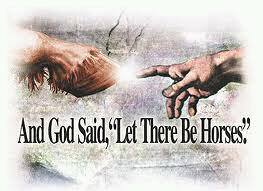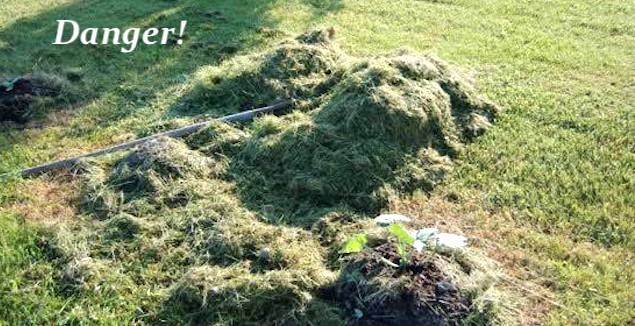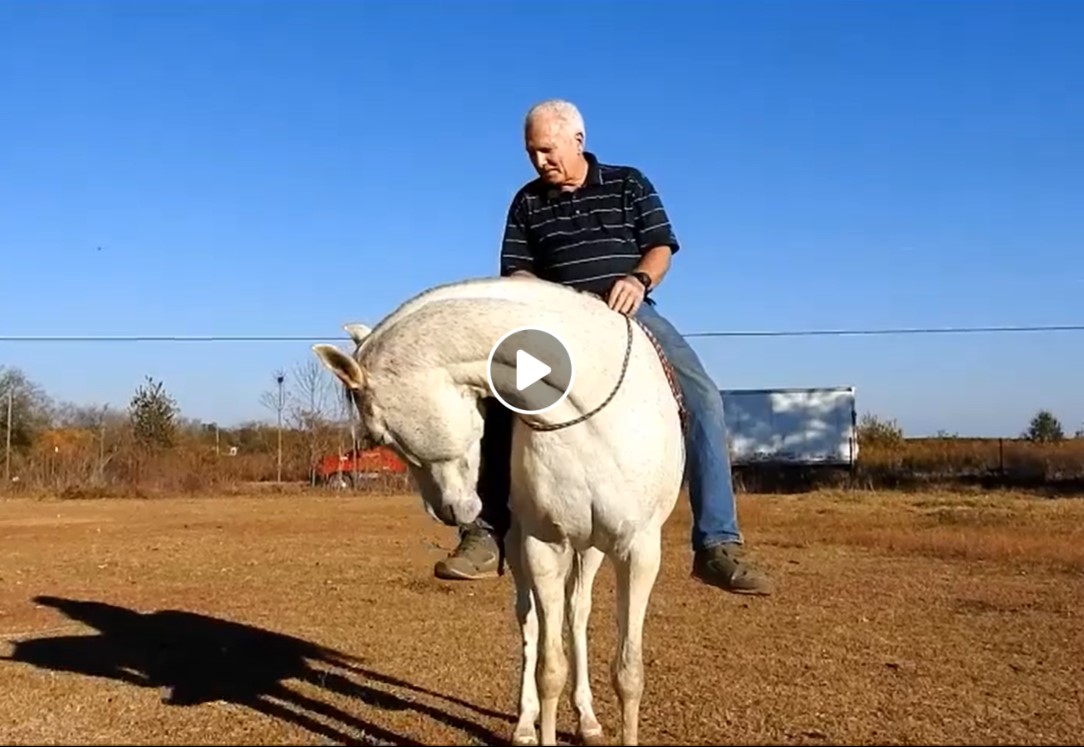It is hot and humid. Saturday comes around and time to cut your lovely green grass that is growing so rapidly with the fresh moisture of the dew and the recent thunderstorm. It is the high humidity and the sunlight that helps your lush green lawn grow so rapidly, but also will contribute to the rapid growth of a toxic mix of bacteria and other dangerous organisms in the piles of grass you have raked up or gathered with your collection bag that you let sit out all day.
We all might have neighbors and boarders at our horse facility that are tempted to scoop up this attractive toxic mix and throw it to our horses. Besides, it is only a treat. No harm right? So innocent their actions. They just don’t know the dangers they pose in doing so. I can’t more emphatically stress the dangers of this practice. This could become a common occurrence unless we have educated our neighbors, friends, and boarders at our little farm or our major horse facility.
I can write about this EXTREMELY DANGEROUS PRACTICE based on my own experience.
One day after returning from a great weekly Team Penning with my two best cattle wise geldings, my wife and I strolled out to give our horses a treat, the carrots we had won at the event. It was enticing for two or three of the most carrot loving mares who took one bite and proceeded to spit out the remnants of the partially chewed carrots on the ground. These three who were the herds one, two and three most dominant mares with the Alpha, were the first one to grab the carrots. One by one, we noticed that our other horses did not want to eat that delectable treat. We had seventeen horses who were all of a sudden dropping like flies and displaying various degrees of colic with the illest of the seventeen was the Alpha followed by the other two in their order of dominance.
“What is this”, we thought as we noticed we were standing on a freshly mowed lawn with partial piles of grass that had been sitting all day long in the heat. Immediately we called our Veterinarian who called out the troops from his clinic when noticed he had in front of him seventeen sick horses who were going downhill quite fast. My worst patient was my Arabian mare that was the Alpha of the herd. Dr. Haugen then diagnosed through the strong pungent odor from the stomach tube that there was a toxic brew of something in there. He looked over at me as we both shook our heads knowingly. He said that this was the second time that day he had seen the same problem. Except this was quite worse with three-quarters of our barn affected. Three Veterinarians from or local clinic converged on our little ranch and started to treat and administer their usual course of action for this type of malady. Upon our investigation, we found that our neighbor innocently gave our horses four piles of grass that had been piled up in the morning after his regular Saturday lawn cutting exercise and let it sit out all day at 95 degrees and high humidity before he fed it over the fence to the ravenous happy horses. Fortunately, our stallions were not adjacent to that fence and had not feasted on that grass. Three extremely ill horses were immediately transported to Oregon State University Veterinary Hospital.
The other fourteen horses had three Vets and our ranch hands intensely treating for the next four days a sick group of horses. Our three horses at the Hospital went through ICU treatment where one mare had the initial symptoms of founder and lost the first layer of her skin and her hooves started to soften at the coronary band. The other two had similar symptoms and were treated for a week in the ICU. That was a costly affair. We lost two foals that were in utero to our two best mares. My neighbor did not know of the danger of such a practice, and I don’t blame him. It was a lesson that was learned where fortunately we did not lose any lives. But the dangers nonetheless were evident, and the temptation was there to treat our horses to such a delicacy.
When you introduce into the equine stomach large quantities of mowed grass that ‘clumps up’ because it is not thoroughly chewed, there is a deadly toxic mix of bacteria growing rapidly as well as other mixes of gas fumes and broken sticks. When it is consumed into a stomach that has not had its twice daily meal since morning, it immediately kills all of the friendly bacteria in the digestive tract and replaces it with the toxins from the deadly bacteria. If not pumped out of the stomach quickly, it rapidly travels down the digestive tract and makes it harder to counteract the severe reactions which are soon to come.
(It should be noted that maintaining a friendly mix of probiotics within the equine digestive tract is essential to a healthy horse. We often supplement such probiotics regularly within their diets.)
The horse’s reaction to this toxic mix sets up a series of reactions that if not rectified quickly can result in a serious founder that can result in the death of our beloved equine friends. The ICU staff immediately administered IV fluids as well as pumping out the contents of their stomachs as quickly as possible. Our vets at home had started this pumping before they were transported. My best mare who was the most ravenous and also the Alpha of the herd suffered the most. At home, our wonderful Vets had not seen the serious reactions our three at the Hospital had been through, but nonetheless were stomach pumped and treated for their colic symptoms as they appeared and were given prophylactic IV fluids by the competent staff from our wonderful Veterinarian’s practice.
I am including an article that tells a similar story.
Please consider educating all of your neighbors, boarding clients, and friends about the danger of feeding grass clippings to our precious horsey friends. We value our horse’s health and maintain our friend’s future relationships in our horsey community greatly.
Please comment below and we can have a discussion of your possible experiences with this subject and how you have dealt with it and ideas of prevention for the future. Thank You for your participation.
~~Horse feedingMark M. Hanna “The Horse Listener”.
Share Your Experience Below




